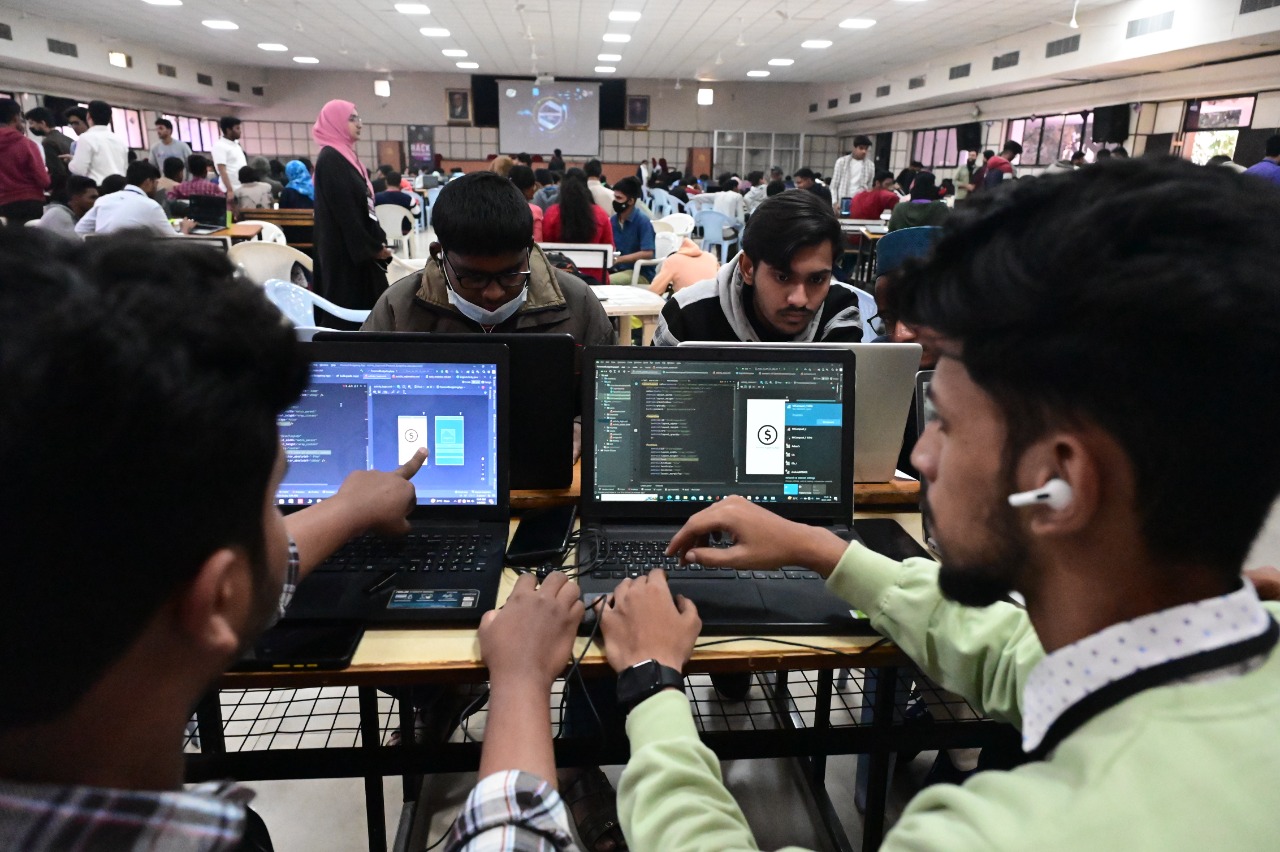About the Course
Established in the year 1986, the CSE Department offers a 4-Year B.E-CSE Degree with an annual intake of 480. The computer center has 12 laboratories catering to the needs of B.E-CSE. The computer centre infrastructure consists of 6 servers (Compaq, IBM and Wipro), 339 desktop computer systems complemented by 36 licensed software like Microsoft Products under Campus and School Agreement (CASA), Rational Enterprise Suite (RES), Rational Software Architect (RSA), Macro Media Studio, Linux, COGNOS Data Mining Tool, WEKA Data Mining Tool, KEIL Embedded System Software, QUALNET Network Simulator, MATLAB, C/C++/Java IDE, etc along with 65 network components (LAN/WAN), 100 Microprocessor Trainer kits, 38 Embedded System kits.
The Department has established “Centre for Innovative Computing” Lab in October 2015 with 60- seater capacity. This lab has All-in-One computer systems with latest configuration and internet connection to cater to the needs of students. This lab is used for conducting training programs for the students and faculty viz. Microsoft Technology Associate (MTA) Certification under Microsoft IT Academy (MSITA), IIT-Bombay Workshops, etc just to name a few.
The department has established “Khan Lateef Mohammed Khan (Centre for Advanced Computing & Informatics)” Lab with a 66 seater capacity and 66 Latest All in One Computer Systems.
Internet access is provided through a 500 Mbps leased line from Pioneer powers.
The Computer Science and Engineering Department has 37 well experienced and qualified faculty members. Among them there are 6 Doctorates and 17 are pursuing their Doctorate degrees.
Vision
To contribute competent computer science professionals to the global talent pool to meet the constantly evolving societal needs.
Mission
M1: Facilitate students with quality education and nurture their soft skills.
M2: Mentoring students towards a successful professional career.
M3: Empower students to meet the evolving societal needs.
